Modern Shipper launched in February 2021 with a mission of highlighting the ever-growing last mile of the supply chain. Throughout the year, we learned a lot, and our readers helped inform us of plenty more.
Looking back on the year that was, there were plenty of stories that resonated with our readers — from drones to automation, from gig workers to last-mile delivery providers. Of course, we can’t forget e-commerce, which is rapidly changing the supply chain and everything and everybody who touches it.
We thank you for taking the time out of your day to engage with us, whether that is through visiting modernshipper.com, becoming fans of our social media channels or watching At Your Doorstep with host Kaylee Nix, a FreightWavesTV show dedicated to the last mile.
Now, as we look back at 2021, here are modernshipper.com’s 10 most popular stories related to e-commerce.
10. Taking on the big dogs
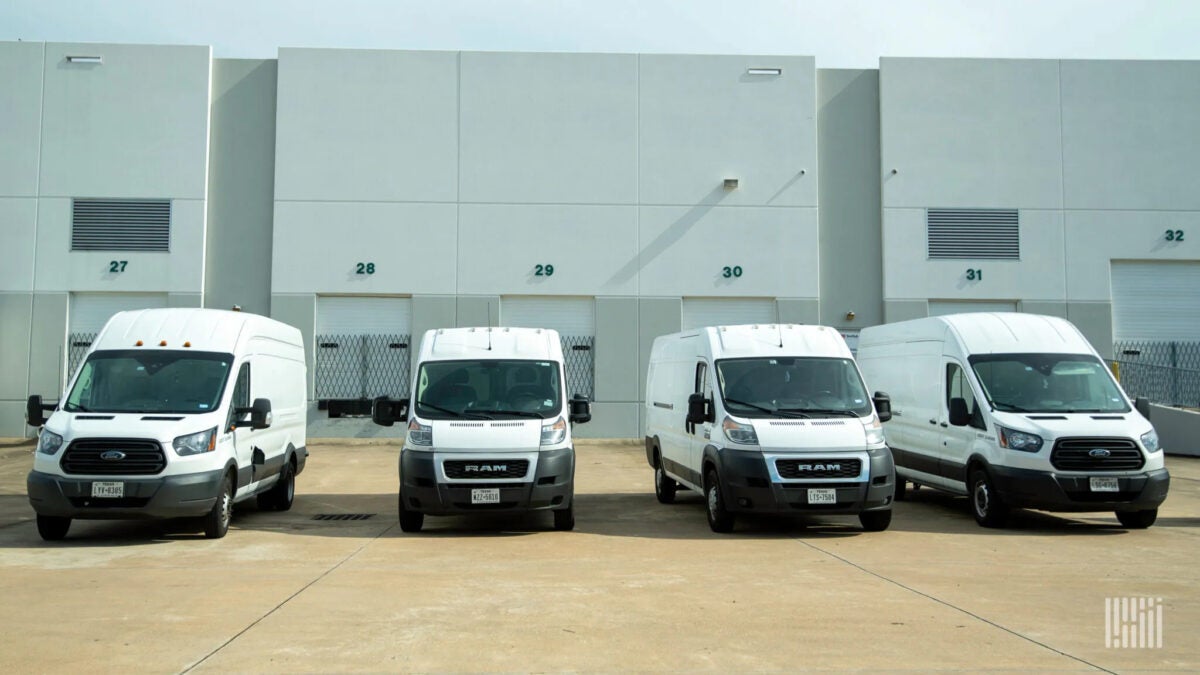
On Nov. 5, 2014, a new company announced its arrival in Australia, promising to take on the monopoly of package delivery that was the Australia Post. Sendle’s founders saw e-commerce’s potential and realized the volume would create inefficiencies and add cost. James Chin Moody, one of the co-founders and now Sendle’s CEO, told Modern Shipper the company got its start as an e-commerce marketplace before quickly pivoting. “We started to build out this synthetic network of carriers. That’s when we realized our purpose wasn’t to make sharing easy, but to make shipping easy,” he said. A delivery platform was born.
Read: FedEx and UPS who? Sendle muscling its way into e-commerce shipping space
9. In the land of giants
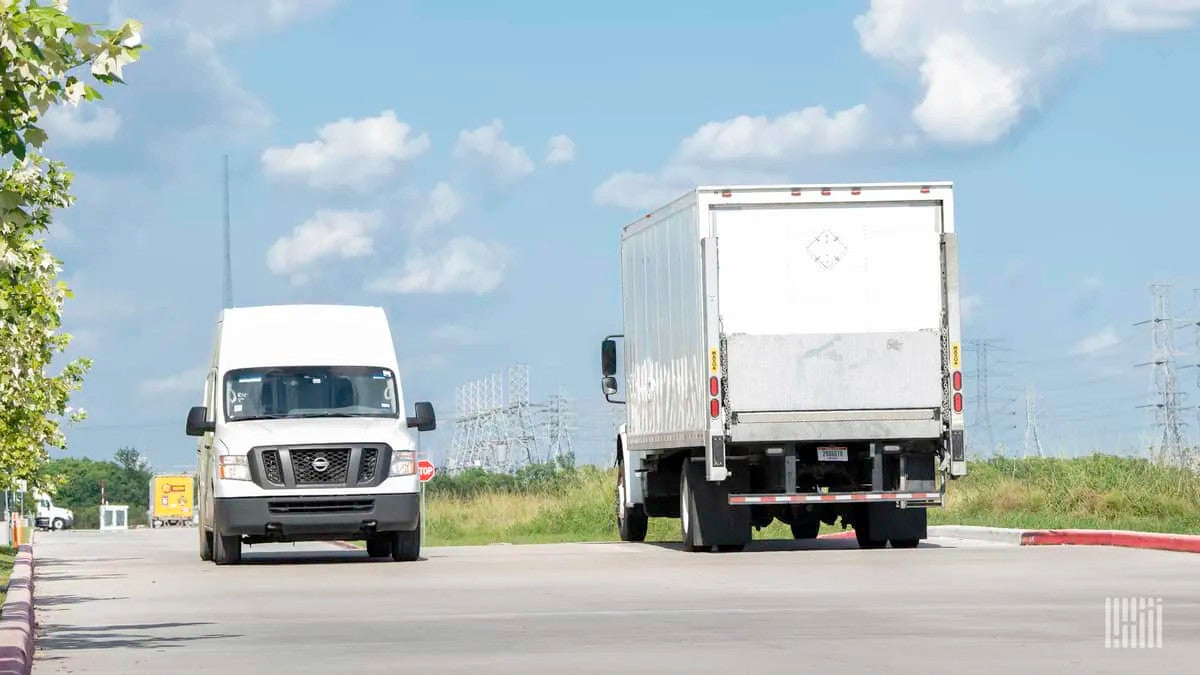
There would seem to be easier ways to build an empire than to launch an end-to-end e-commerce delivery company to compete with FedEx Corp., UPS Inc., Amazon.com Inc. and, to a degree, the U.S. Postal Service. But Scott Ruffin is ready to give it a try. Working in Ruffin’s favor is massive e-commerce fulfillment and delivery growth that might bake a big enough pie for multiple folks to get fat from. After a yearlong stint at J.W. Logistics Inc. in Seattle, Ruffin spent 18 months as head of Walmart Inc.’s e-commerce transportation unit. Ruffin left in June to launch Pandion, a Seattle-based firm that exited stealth company status on Tuesday to make its intentions publicly known for the first time.
Read: E-commerce delivery startup Pandion looks in eyes of giants
8. Choppy waters

Over the past few decades, e-commerce has grown from a puddle to a lake to a sprawling ocean. In 2000, the U.S. transacted about $27.5 billion in e-commerce sales. By 2010 that number had grown sixfold to nearly $170 billion, and in 2020, U.S. e-commerce sales totaled about $763 billion, nearly $200 billion more than 2019. But for all the shifting and repositioning of commerce from the physical world to the digital, there have also been churning waters within the ocean of e-commerce. As shopping online becomes more and more consumer-centric, brands have realized that one size no longer fits all, and that’s caused the meteoric rise of three new forms of social e-commerce — influencer marketing, live shopping and conversational commerce. Whether buyers and brands are ready or not, a new wave of e-commerce is here, and everyone had better put on a poncho.
Read: Put on your ponchos: The new wave of e-commerce has arrived
7. Investing wisely
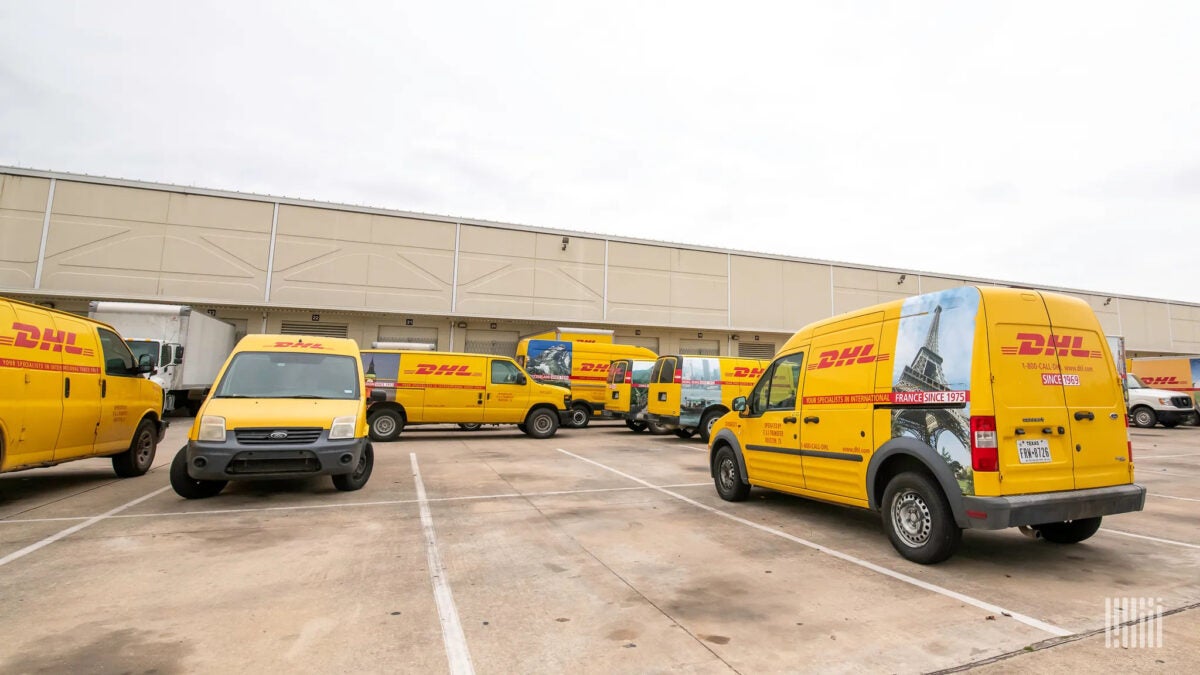
DHL Express said it is investing more than $360 million in facilities and new air capacity for the Americas region through 2022 to support parcel growth fueled by demand for e-commerce transactions. The new infrastructure, which includes technologies to improve operational efficiency, will increase network capacity in North and South America by nearly 30%, DHL said. More capacity means faster shipment processing and earlier deliveries for customers. The express carrier has added some pop-up retail stores in the U.S. and some electric vehicles since 2020, but most of the investments scheduled over a three-year period are still to come, officials said.
Read: DHL Express invests $360M in Americas to keep up with e-commerce
6. Buying into e-commerce
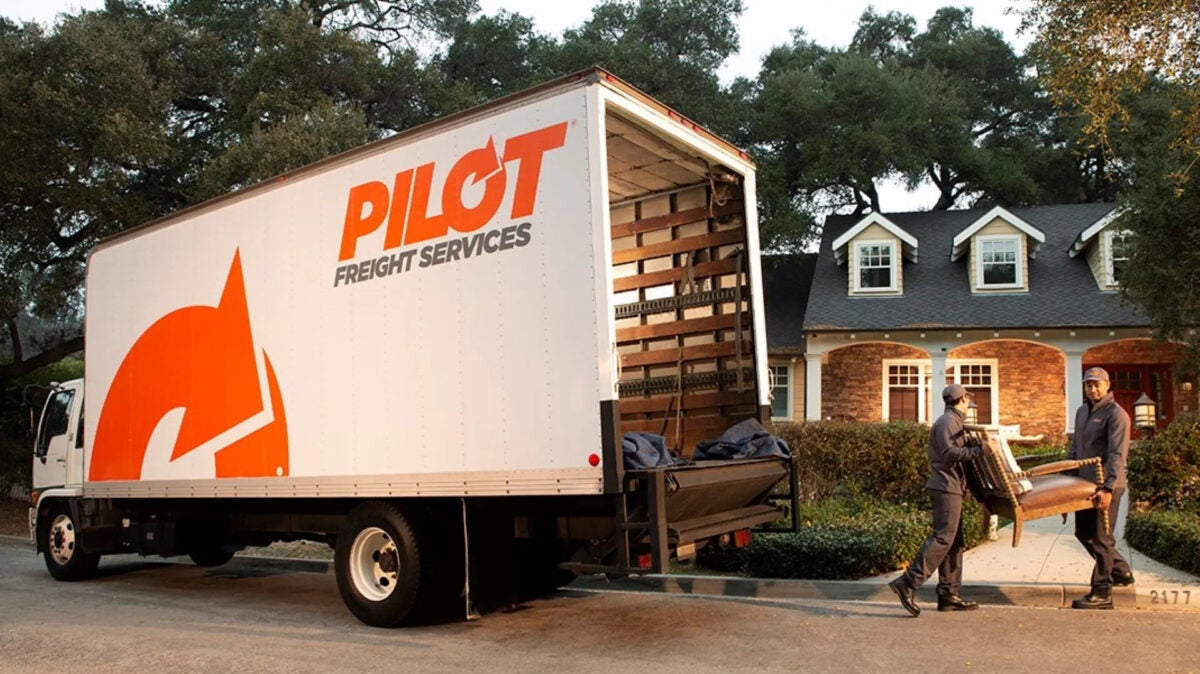
Pilot Freight Services, a logistics provider backed by private equity, announced in August it had acquired expedited less-than-truckload carrier American Linehaul to provide intercity capacity for its growing e-commerce business. American Linehaul runs a scheduled airport-to-airport, LTL linehaul system that forwarders often use as a less expensive, sometimes faster, alternative for shipments booked to move by air. The network — with more than 66 outbound airport cities and 70 destinations, connected through seven regional hubs — will now double as the strategic middle-mile piece in Pilot Freight’s vertically integrated suite of door-to-door, home delivery and installation services for bulky items such as sofas, mattresses and kayaks.
Read: Pilot Freight buys expedited carrier to integrate e-commerce delivery
5. LTL’s opportunity
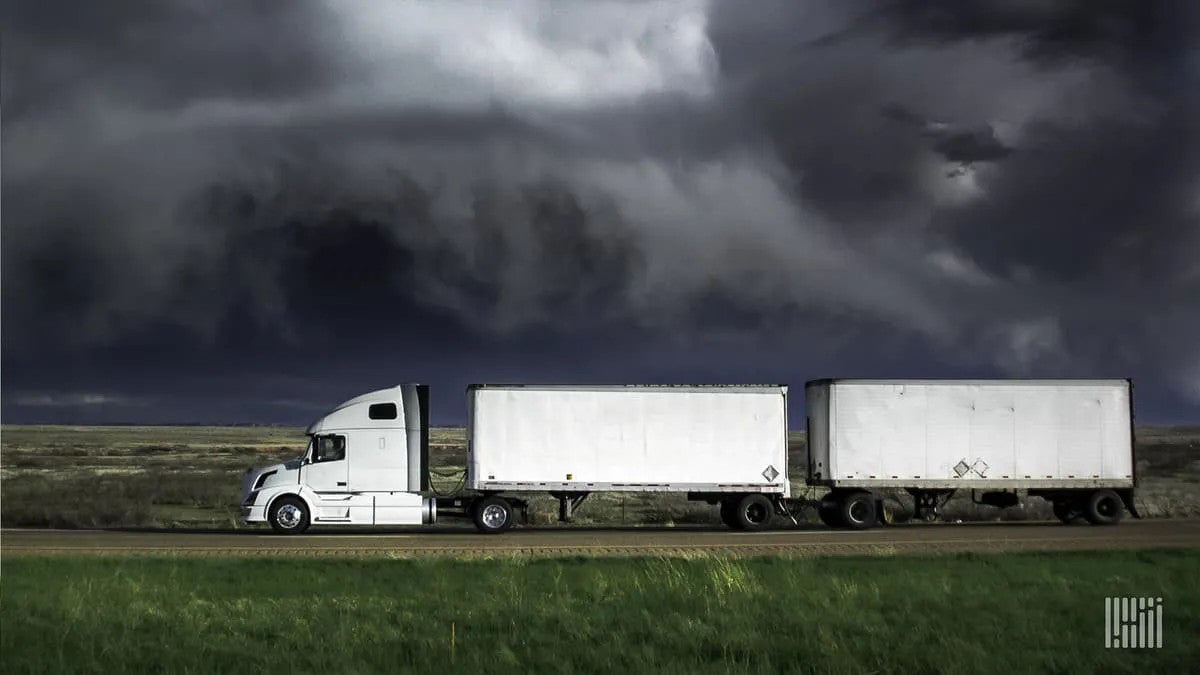
The consumer spending boon, driven by government stimulus, is driving elevated demand for every mode of freight from ocean to air. Less-than-truckload is no exception. Not only are LTL providers seeing a surge in demand from Americans now ordering anything and everything online, but because of the imbalance between truckload supply and demand, nontraditional TL freight is spilling over into LTL as well. LTL is uniquely positioned to take advantage of multiple trends emerging from e-commerce acceleration.
Read: Why LTL is perfectly positioned to take e-commerce market share
4. A $14 billion bet
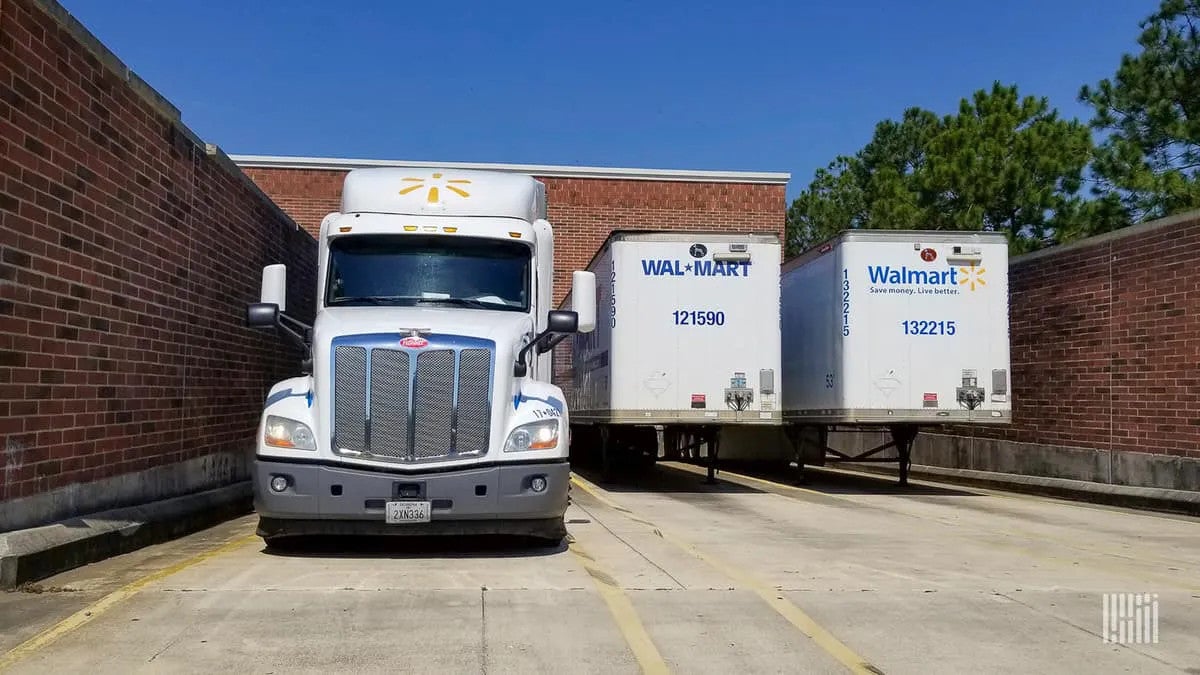
Walmart (NYSE: WMT) reported Q4 earnings in February that fell short of Wall Street’s expectations, despite posting same-store sales growth of 8.6%. That’s a huge handle for a company Walmart’s size and is by far the highest growth among comparable stores in the past 10 years, more than double the next closest growth rate of 3.7% in 2019. But e-commerce is growing faster, so Walmart is making investments to the tune of $14 billion. CFO Brett Briggs believes the company needs to “lean in more aggressively in key markets with increased capital and fulfillment capacity, supply chain, automation, and technology.”
Read: Can $14 billion get Walmart to e-commerce profitability?
3. Deal making
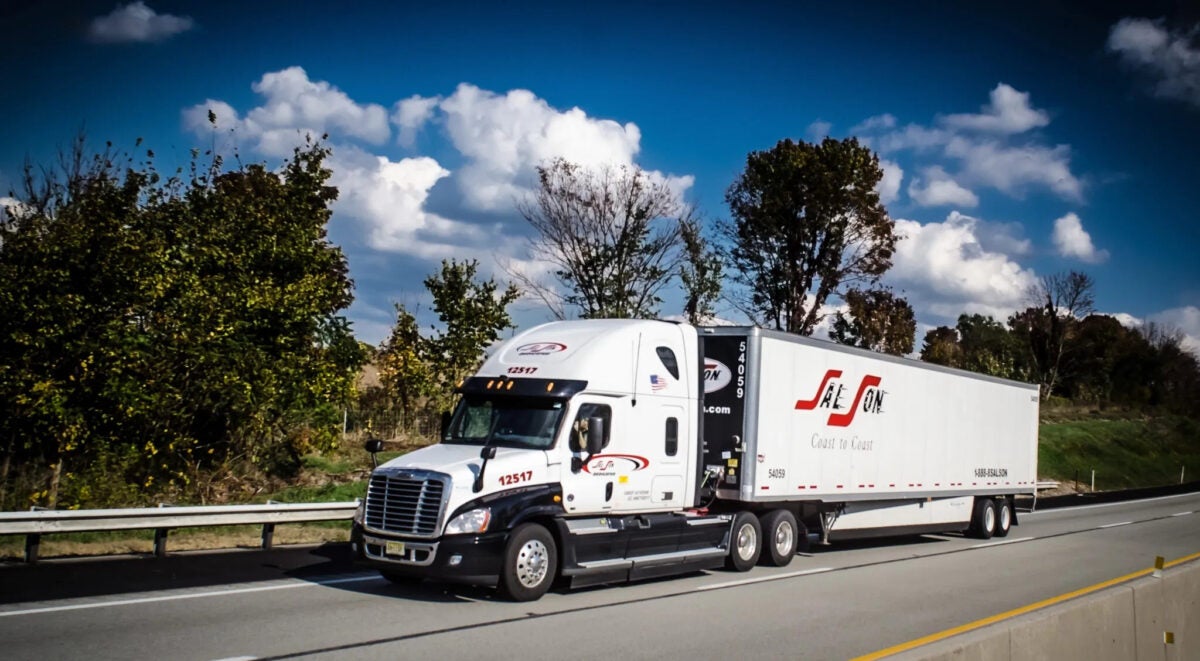
Transportation and Logistics Systems Inc. (OTC: TLSS) said it entered into an agreement in June to acquire all of the outstanding shares of SalSon Logistics. The Jupiter, Florida-based e-commerce fulfillment provider said the $90 million purchase price includes $50 million in cash, 19.9% of TLSS stock and $20 million in seller financing. The stock purchase agreement would net TLSS a 60-year-old third-party logistics company that is expected to “anchor” its growth strategy. “This would be a game-changing acquisition for TLSS,” said CEO John Mercadante. “Moreover, SalSon’s business provides an amazing platform and extensive infrastructure that would greatly enhance the company’s ability to execute its acquisition and organic growth strategy.”
Read: E-commerce fulfillment provider TLSS seeks to acquire SalSon Logistics for $90M
2. I’m looking to buy
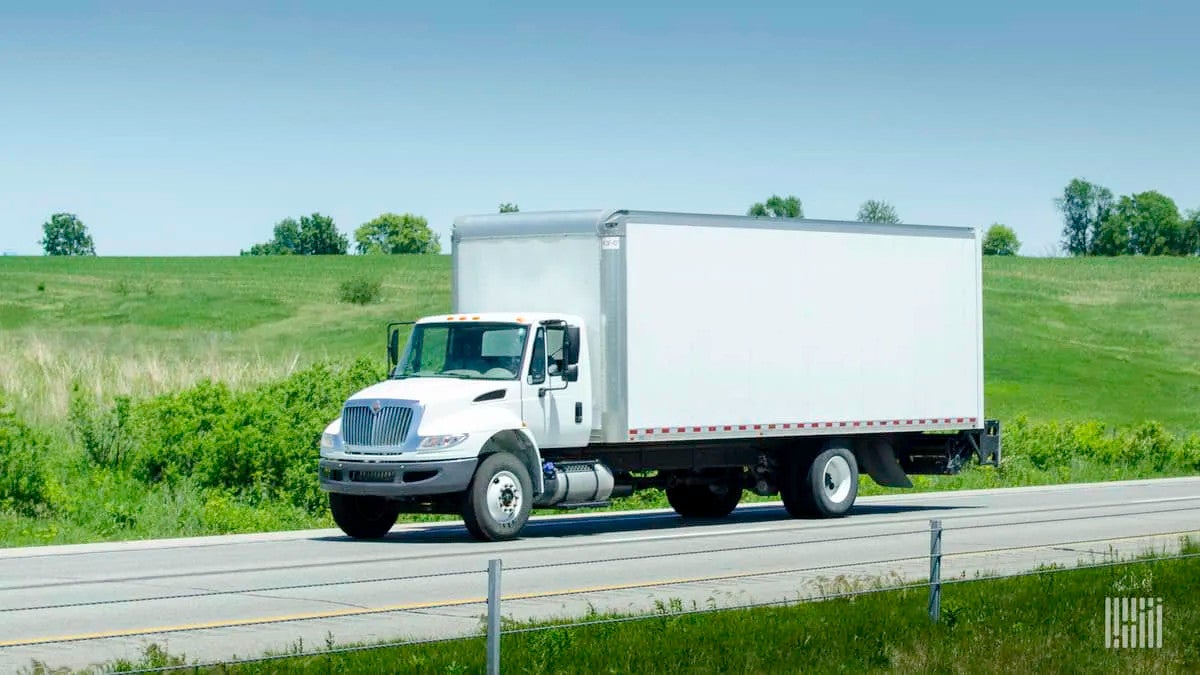
E-commerce- and transportation-focused special purpose acquisition company (SPAC) Ocelot Acquisition Corp. I filed its registration statement in February with the Securities and Exchange Commission. The blank check company is seeking to raise $250 million through an initial public offering. The company’s sponsor is listed as an affiliate of Ocelot Capital Management LLC, an Austin, Texas-based family office investment firm. Ocelot has prior experience in the transportation industry. The filing says the new entity eyes acquisitions in the “e-commerce, transportation and logistics, and logistics technology industries” and notes its management team’s experience in the space as a plus.
Read: $250 million SPAC eyes e-commerce, transportation
1. The new world order
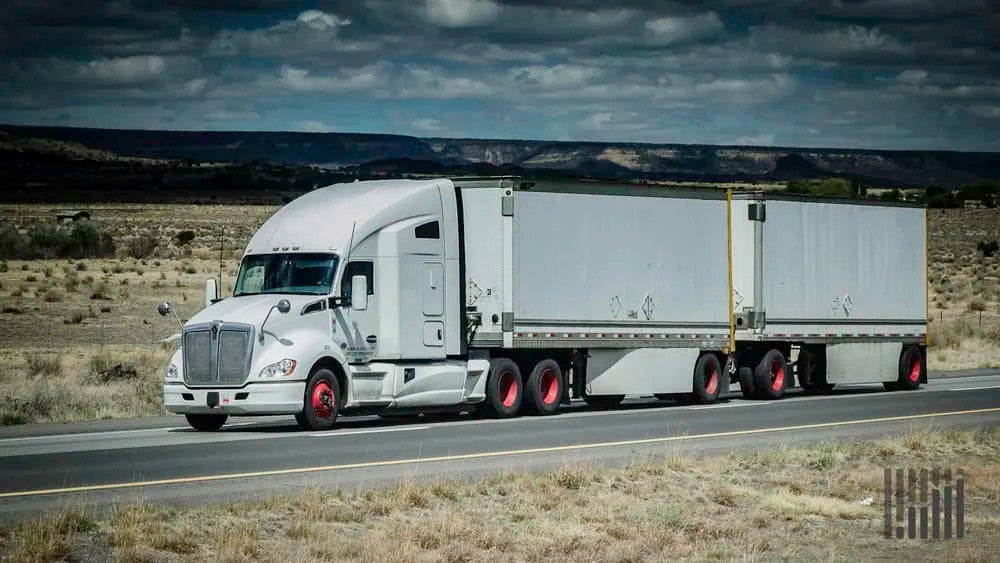
The once-stagnant logistics industry has undergone rapid change in recent years. The 2017 electronic logging device mandate sparked something of a technological revolution within the industry. This focus on tech — coupled with outside forces ranging from consumer demand to climate change — has fostered an environment of innovation. Companies that are slow to adapt to new expectations are likely to be left behind. Shippers are no exception. “If you look at transportation as a whole, it is on a hockey stick growth curve. If you look at parcel and e-commerce within parcel, the amount of growth over the last year has been wild,” Sifted Chief Revenue Officer Caleb Nelson said. “The rate of growth has been so drastic that capacity is struggling, leaving shippers in a tight spot.”
Read: New era of shipping: E-commerce, climate change and data analytics
Click for more articles by Brian Straight.
You may also like:
Drones are flying into weather data deserts. Can they be stopped?
Navigating COVID-19 shipping chaos: Finding capacity and servicing the customer







